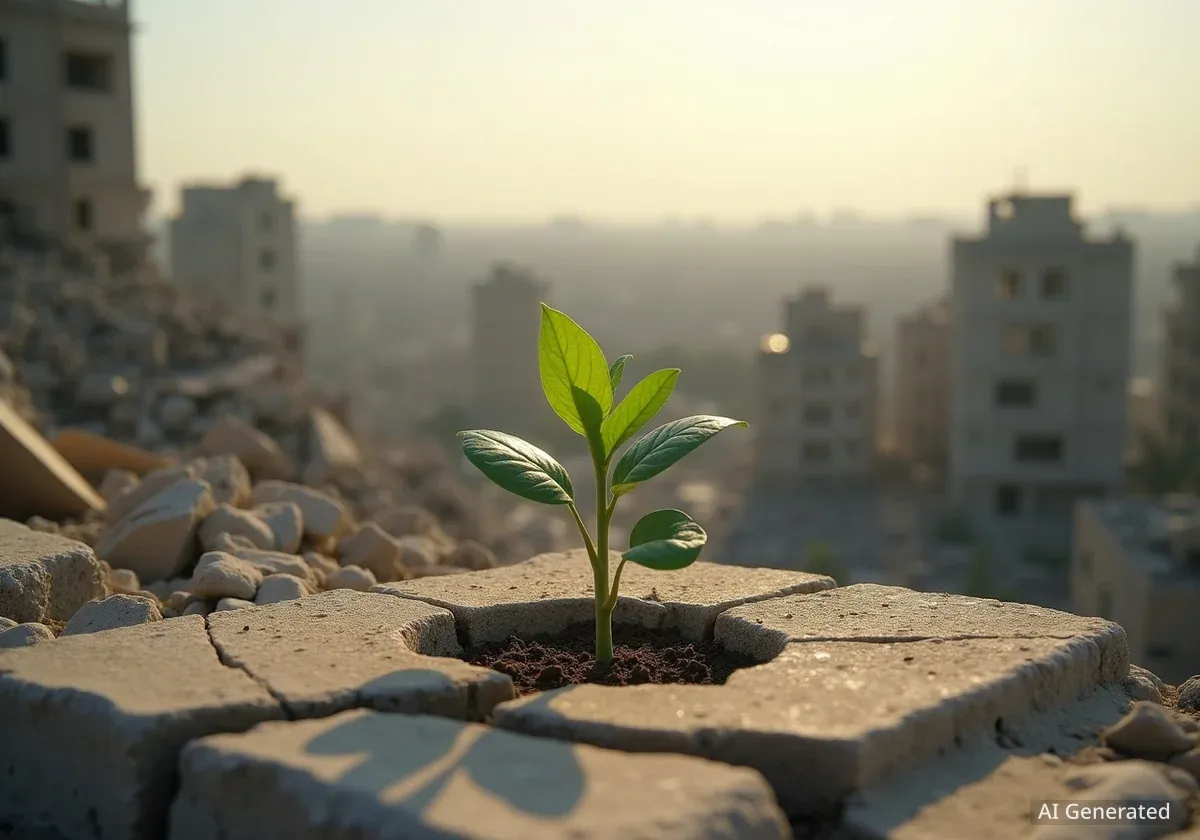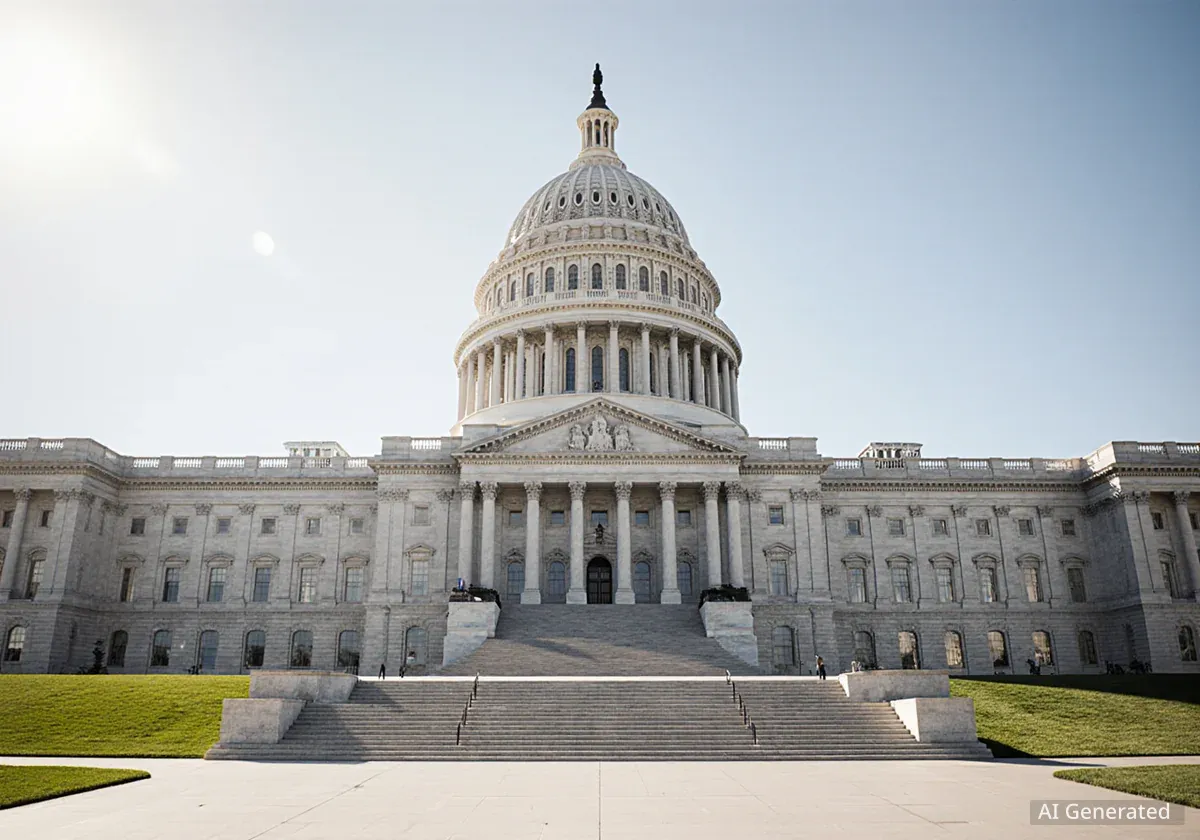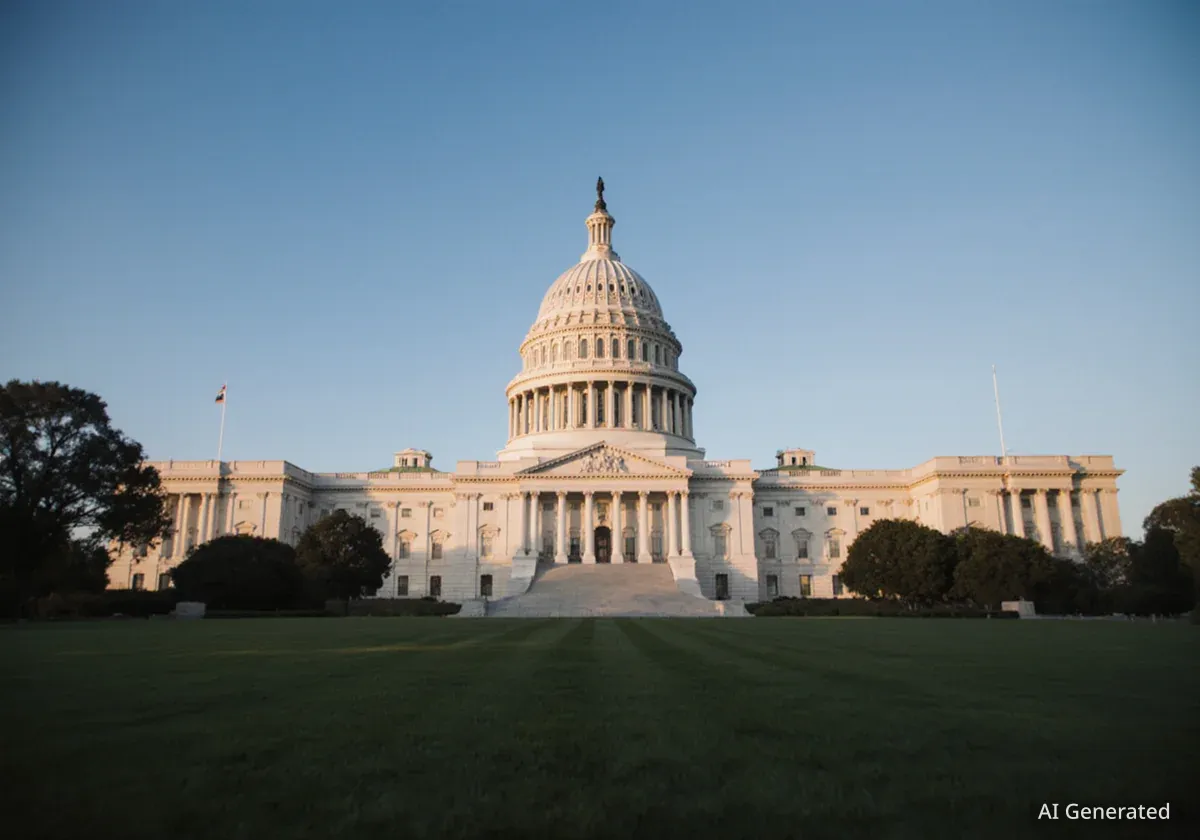Israeli Finance Minister Bezalel Smotrich has ignited international criticism following remarks in which he described the Gaza Strip as a potential "real estate bonanza." Speaking at an event in Tel Aviv, the far-right minister suggested plans for redevelopment and profit-sharing from land marketing in the heavily damaged territory.
The comments come amid a devastating conflict that has left the majority of Gaza's infrastructure in ruins. Smotrich's statements have been widely condemned by international bodies and have raised concerns about Israel's long-term intentions for the Palestinian territory.
Key Takeaways
- Israeli Finance Minister Bezalel Smotrich referred to Gaza as a "real estate bonanza."
- He stated that after a "demolition phase," a "building" phase should follow, suggesting discussions with the U.S. on dividing the territory.
- The United Nations reports that over 90% of housing and schools in Gaza are damaged or destroyed.
- Reconstruction is estimated to cost more than $50 billion over a decade.
- The remarks have drawn significant international condemnation and are seen as inflammatory.
Details of the Minister's Statement
During a conference in Tel Aviv, Bezalel Smotrich, a prominent figure in Israel's governing coalition, outlined a vision for Gaza's future that centered on commercial development. He framed the extensive destruction from Israel's military campaign as a precursor to new construction.
"We’ve done the demolition phase… Now we need to build," Smotrich was quoted as saying. His remarks implied that the current devastation creates an opportunity for a complete redevelopment of the area.
Furthermore, Smotrich suggested a financial motive behind such a plan. He indicated that Israel could potentially profit from the redevelopment effort, stating, "We paid a lot of money for this war… we need to divide how we make a percentage on the land marketing later." This comment has been interpreted by critics as viewing the war-torn land as a commercial asset.
The Scale of Destruction in Gaza
Smotrich's comments stand in stark contrast to the humanitarian crisis on the ground. Independent assessments paint a grim picture of the widespread damage across the Gaza Strip since the conflict began.
Gaza Infrastructure Damage: By the Numbers
According to recent United Nations reports, the level of destruction is staggering:
- Housing: An estimated 92% of all residential buildings have been damaged or destroyed.
- Education: Approximately 91% of school buildings have sustained damage.
- Reconstruction Cost: The UN estimates that rebuilding Gaza will cost at least $53 billion and could take a minimum of 10 years.
These figures highlight the immense challenge of reconstruction and the deep humanitarian needs of Gaza's population. For many international observers, discussing real estate development while a significant portion of the population is displaced and essential services are non-existent is deeply problematic.
Historical Context and Previous Proposals
The idea of redeveloping Gaza with international involvement is not entirely new, though the context and intent behind Smotrich's proposal are distinct. His vision has drawn comparisons to a controversial plan floated during the Trump administration.
The 2025 Trump-Era Vision
A 2025 proposal associated with former U.S. President Donald Trump envisioned placing Gaza under a U.S. trusteeship. The goal was to transform the territory by developing tourism and high-tech industries. However, this plan was overwhelmingly rejected by Palestinians, neighboring Arab nations, and the broader international community, who viewed it as a violation of Palestinian sovereignty and self-determination.
While Smotrich's remarks did not explicitly call for a U.S. trusteeship, his mention of discussions with the United States about dividing the territory has revived concerns about external plans being imposed on Palestinians without their consent.
International Reaction and Minister's Political Standing
The finance minister's statements were met with swift and strong criticism from around the world. Diplomats and human rights organizations condemned the language, describing it as insensitive and alarming. The remarks have fueled accusations that some Israeli officials are not focused on a peaceful, two-state resolution but rather on the permanent displacement of Palestinians and the annexation of their land.
Bezalel Smotrich is a controversial figure known for his hardline views. He currently holds significant power within the Israeli government, not only as Finance Minister but also with authority over civilian matters in the occupied West Bank. In this role, he has been a vocal proponent of expanding Israeli settlements, which are considered illegal under international law.
Smotrich is already under sanctions by the United Kingdom for what the British government described as incitement and efforts to destabilize the West Bank. His latest comments are likely to increase diplomatic pressure on Israel from its allies.
His political history and existing sanctions provide a background for the international community's heightened alarm over his vision for Gaza. Critics argue his words are not merely rhetorical but reflect a policy direction that could prevent any future viable Palestinian state and prolong the conflict indefinitely.





